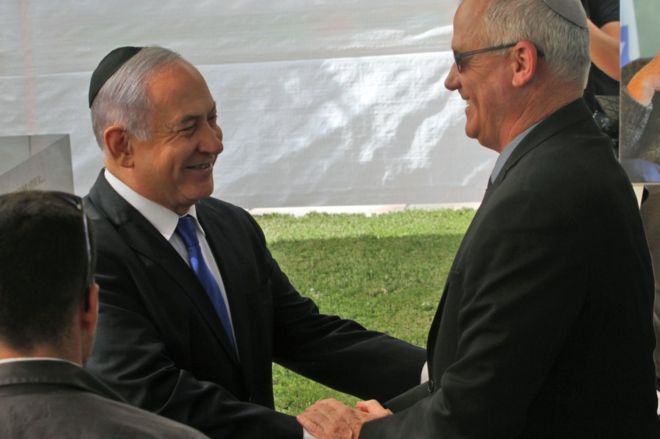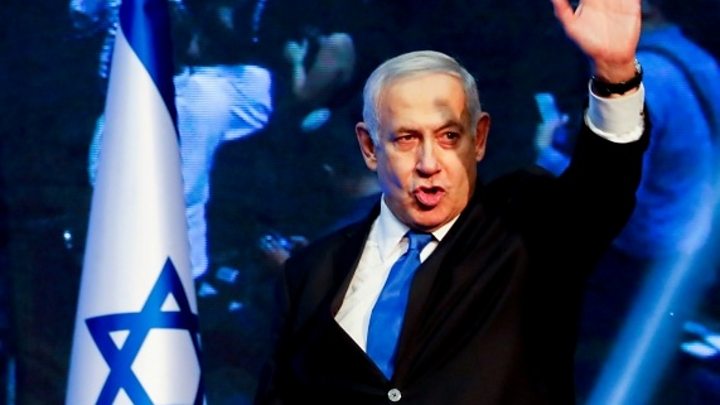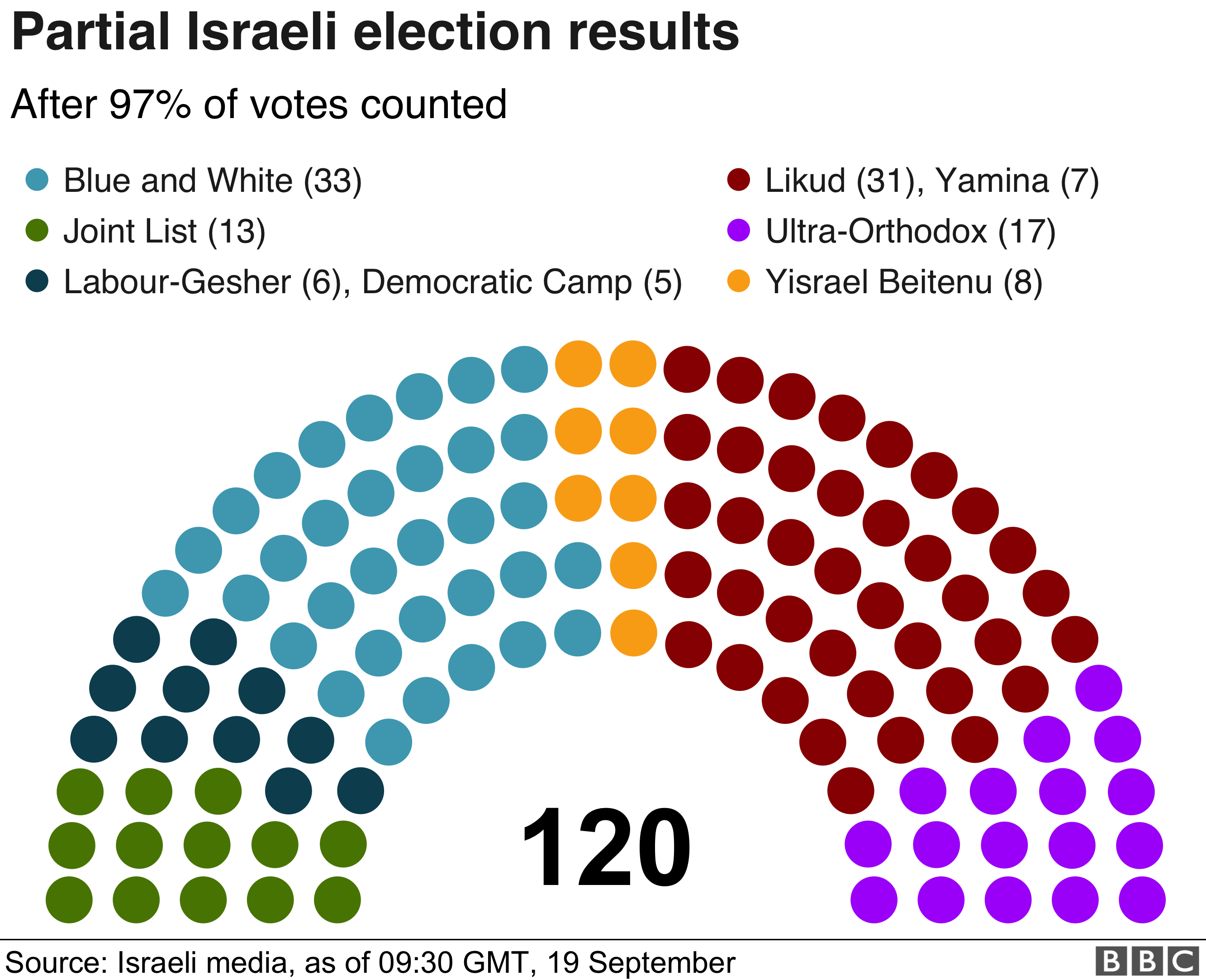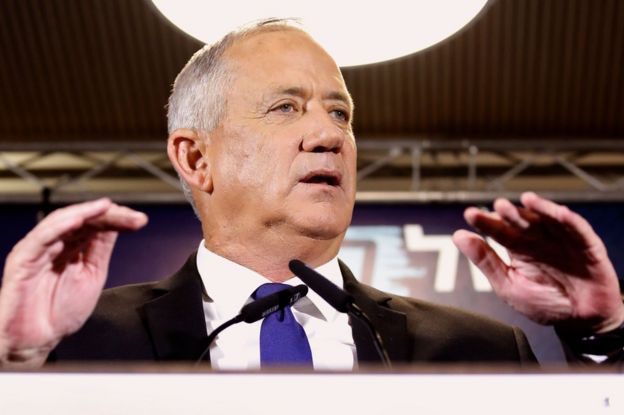 Image copyrightAFP
Image copyrightAFP
Israeli Prime Minister Benjamin Netanyahu and his rival Benny Gantz are jostling over the terms of a unity government, after the country’s second election in a year ended in deadlock.
Local media say both men’s parties failed to win enough votes on Tuesday to build a coalition with a majority.
Mr Netanyahu urged Mr Gantz to start negotiations on a joint administration.
Mr Gantz rebuffed the idea, calling it spin. He said he wanted a unity government – but only one led by him.
His party has ruled out joining a coalition led by Mr Netanyahu, who faces possible corruption charges.
At a ceremony attended by both party leaders in Jerusalem, President Reuven Rivlin said he had heard “loud and clear the voices calling for a broad and stable national unity government” and praised the prime minister for “joining that call”.
Mr Rivlin will hold consultations with party representatives before nominating a candidate whom he believes has the best chance of forming a government.
What was the outcome of the election?
Official results have been slow to be released by the Central Election Committee, with only 68.6% of votes counted by 16:23 (13:23 GMT) on Thursday.
Mr Gantz’s centrist Blue and White party is 0.77% ahead of Mr Netanyahu’s right-wing Likud party. The Joint List, an alliance of Arab parties, is in third place, the ultra-Orthodox Shas party in fourth, and the secular nationalist Yisrael Beiteinu party in fifth.

The CEC tally does not say how this translates into seats in the 120-seat Knesset (parliament) but Israeli media reported that Blue and White was on track to win 33 seats, two more than Likud.
A centre-left bloc led by Mr Gantz was projected to control 57 seats and a bloc of right-wing and religious parties allied to Mr Netanyahu looked set to have 55.

Neither would therefore be able to form a majority coalition without support from Yisrael Beiteinu, whose leader Avigdor Lieberman has called for a “liberal” unity government including Likud and Blue and White.
Mr Lieberman prevented Mr Netanyahu from forming a majority coalition after the last election in April because he refused to back down in a longstanding dispute with religious parties over exempting ultra-Orthodox men from military service.
How have the party leaders responded?
In a video released on Thursday, Mr Netanyahu said that, “to his regret”, the election results showed he would not be able to establish a right-wing government.
“There is no choice but to establish a broad government, as broad as possible, composed of all those elements to whom the state of Israel is dear,” he added.
“Benny, we must set up a unity government today. The people expect the two of us to show responsibility and work for co-operation. That is why I call on you, Benny. Let’s meet today, at any hour, at any time, to put this in motion.”
 Image copyrightAFP
Image copyrightAFPHe also evoked the unity government between Shimon Peres and Yitzhak Shamir in the 1980s – which some local media saw as a hint towards a possible rotating premiership.
But Mr Netanyahu’s call was dismissed by Mr Gantz within hours.
The former military chief read out a statement saying, “Blue and White, headed by me, has won the election” and “We will not be dictated to”.
“In order to form a unity government, we must not come with political blocs and spinning, but rather with honestly, patriotism, responsibility and seriousness,” he added.
“I am interested in and intend to form a broad and liberal unity government, under my leadership. A government that will convey the will of the people.”


